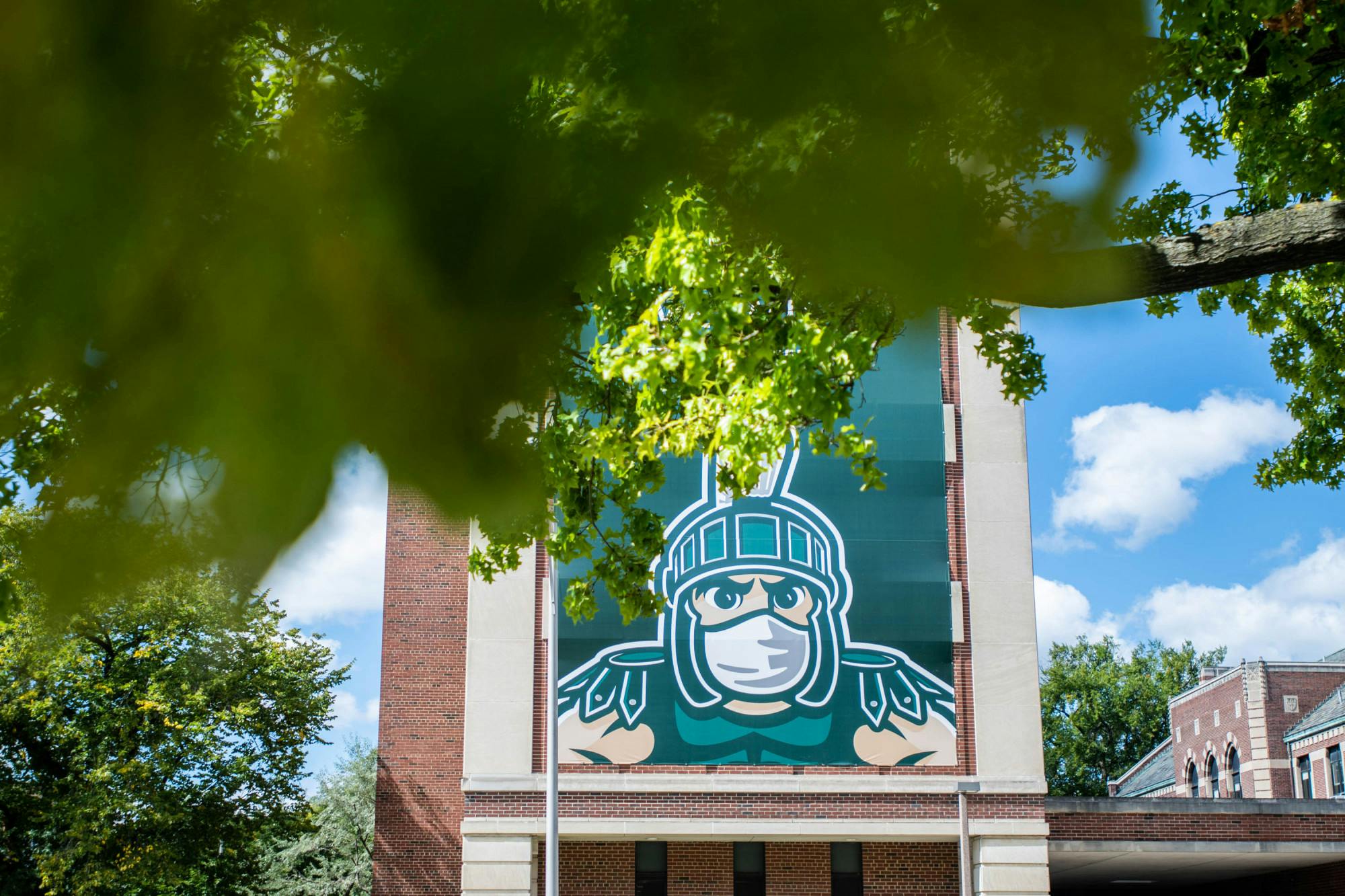As the cold weather settles in and the holiday decorations slowly make their way up onto doors and windows, college students are preparing to make the annual trip to their hometown for the holidays.
However, this holiday season is different from previous years. COVID-19 cases are reaching record numbers in Ingham County, throughout Michigan and across the country. Hospitals are reaching capacity, grocery stores are implementing new policies to prevent panic buying and medical professionals are bracing for the pandemic to continue to get worse.
The Centers for Disease Control and Prevention (CDC) recommends against traveling during the pandemic, as it heightens the risk of exposure and transmittal to your community. New regulations by Gov. Gretchen Whitmer limit family gatherings to just one other household beginning Wednesday, Nov. 18.
We recognize that family gatherings during the holidays are an important time to reconnect with loved ones during an otherwise isolating year. We want to see our families too.
Be wise. Reckless travel risks not getting to see your family next year.
We encourage everyone to follow public health recommendations and restrictions to their fullest extent especially given the rise in cases. We cannot condone any level of disregard for public health.
While we understand that a worsening global pandemic isn’t enough to stop some from traveling home to put down your masks, hug your loved ones and share a meal around a non-socially distanced table, we want to urge against complete dismissal of all necessary public health orders and precautions.
So, if you choose to travel home for the holidays, here are some recommendations to keep you, your family and the community you are traveling to safe.
You should wear a mask around anyone you don’t live with and socially distance as much as possible. Eating the family dinner outside reduces the chance of transmitting the virus significantly, plus it’s a good way to get some much needed vitamin D during the colder months.
While virtual events offer the lowest risk of exposure, small outside gatherings are the next best thing.
Families should avoid buffet style and sharing serving utensils at all costs. Instead, we suggest one person serve each dish to other family members. Also, everyone should wash their hands constantly throughout the day and avoid touching their face. Sanitize frequently-touched surfaces during the day and limit time indoors, gathered in a closed space.
Taking such measures will not completely guarantee your safety but can reduce the risk of exposure.
It’s important that students quarantine for 14 days before traveling to their hometowns. Avoid large protests, tailgates, parties and other social gatherings. Attending these events heightens your exposure risk, even if you follow the other guidelines.
You should avoid these gatherings at all times, even if you aren’t traveling.
Getting tested before you travel provides a false sense of security and the result is only applicable for the time you got tested.
However, getting tested before you travel home is a great way to determine if you could be exposing your family members and community to COVID-19. We want to emphasize the importance of taking precautions on your journey home.
Use disinfectant wipes on gas pump handles, airplane seats and any other public surface. Wear a mask when you stop for food, at gas stations, or walk through the airport. Additionally, wash and sanitize your hands as often as possible.
Just because you were COVID-negative when you left East Lansing, doesn’t mean you will avoid exposure to it during your trip. False negatives and missed testing windows are also risk factors to account for.
The CDC recommends that after exposure, even if you test negative for COVID-19 or have no symptoms, you should quarantine since symptoms may appear two to 14 days later. At a time like this, it is difficult to know for certain if you have been exposed to the virus at any given time.
Getting tested after you return from holiday travels is also a good idea. Michigan State will resume its COVID-19 Early Detection Program, or Spartan Spit, on Nov. 30 for students, right after the Thanksgiving holiday. As case counts increase, diagnostic swab tests may be needed for those who have symptoms, but Spartan Spit is a good starting point for asymptomatic travelers.
Support student media!
Please consider donating to The State News and help fund the future of journalism.
Of course, you should not travel home if you currently have COVID-19, might have been exposed within 14 days of your travels or have symptoms of COVID-19. Instead, the CDC recommends you attend a virtual holiday celebration so you don’t miss out on the festivities.
The holidays are a happy time for many people. But if we don’t do our part for the community, the result can be overwhelmed hospitals, more fatal COVID-19 cases and more isolation from our loved ones in the future.
Do the right thing and follow the guidelines. Save the lives of your family members and the greater community.
Have a happy and safe holiday season.
The State News Editorial Board is composed of Editor-in-Chief Evan Jones, Managing Editor SaMya Overall, Campus Desk Editor Karly Graham, City Desk Editor Kaishi Chhabra, Culture Desk Editor Devin Anderson-Torrez, Sports Desk Editor Jayna Bardahl, Copy Chief Mark Ostermeyer, Audience Engagement Editor Sophia Kalakailo, Multimedia Manager Tessa Osborne, Photo Editor Alyte Katilius, Staff Rep. Wendy Guzman and Diversity and Inclusion Rep. Di’Amond Moore.
This editorial is part of our Election Aftermath print issue. Read the full issue here.
Discussion
Share and discuss “Editorial: Traveling home for the holidays? Read this to keep your family safe” on social media.







